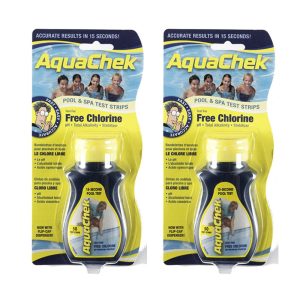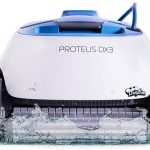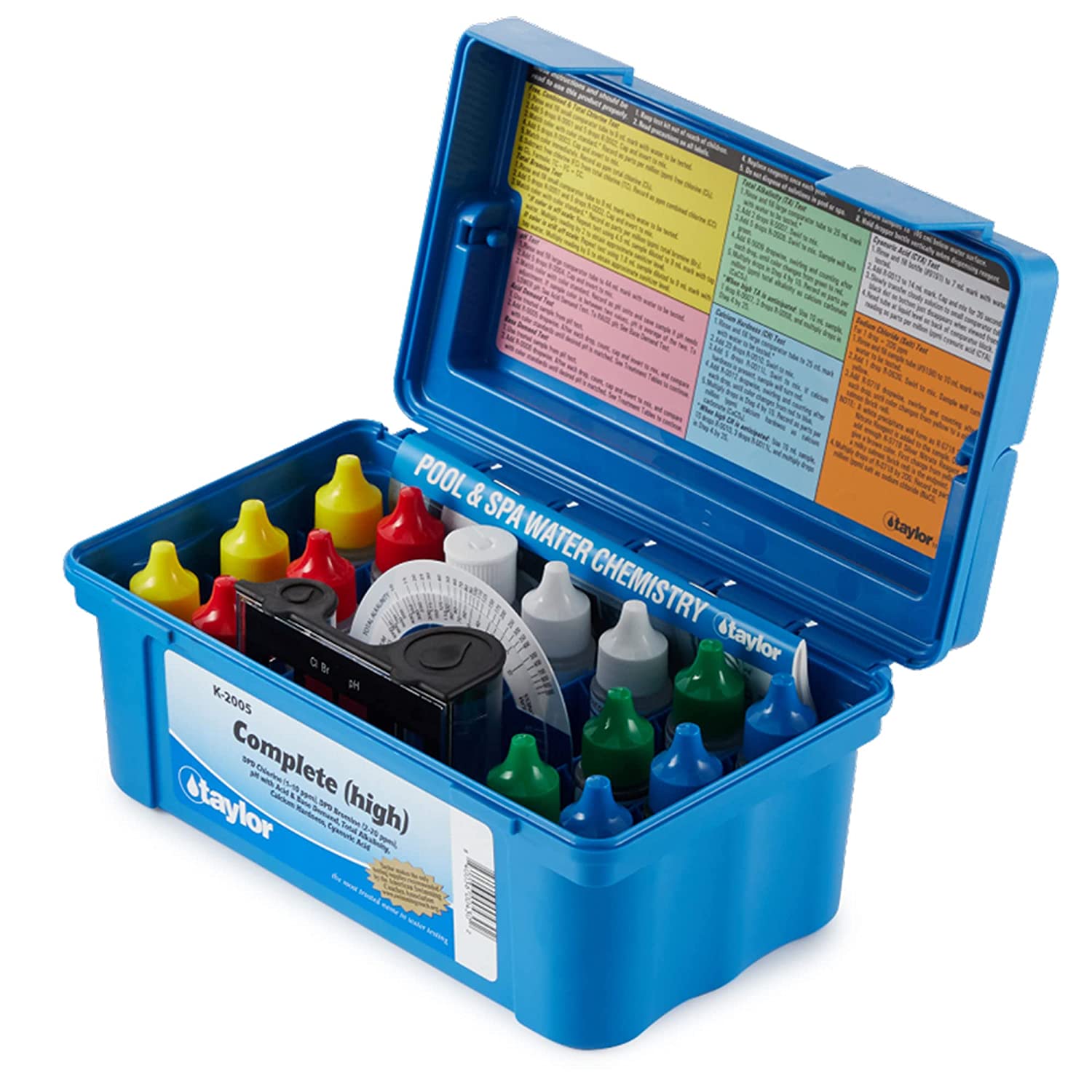
Dive Into Clarity: A Guide to Different Types of Pool Test Kits and the Best Options for Accurate Readings
Proper pool maintenance is essential for ensuring sparkling clean water and a safe swimming environment. One crucial aspect of pool maintenance is regularly testing the water chemistry. With a plethora of pool test kits available in the market, it can be challenging to determine which one is the best fit for your needs. This article aims to guide you through the different types of pool test kits and highlight the ones that provide the most accurate readings.
- Types of Pool Test Kits
There are three primary types of pool test kits: test strips, liquid test kits, and digital test kits. Each type has its advantages and drawbacks, which we will discuss below.
a. Test Strips
Test strips are a popular choice for their ease of use and affordability. To use a test strip, simply dip it into the pool water, wait for the specified time, and compare the color changes to a provided chart. Test strips can measure a variety of parameters, including chlorine, bromine, pH, alkalinity, and hardness.
Pros:
- Affordable
- Easy to use
- Quick results
Cons:
- Less accurate than other testing methods
- Can be affected by exposure to moisture or sunlight
b. Liquid Test Kits
Liquid test kits use reagents, which are chemical solutions that react with pool water to produce a color change. These kits typically come with vials, reagent bottles, and a color chart. To test the water, you’ll fill a vial with pool water, add the required number of drops from the reagent bottles, and compare the resulting color to the chart.
Pros:
- More accurate than test strips
- Can test for multiple parameters
Cons:
- Slightly more complex to use
- Reagents have a limited shelf life
c. Digital Test Kits
Digital test kits combine the accuracy of liquid test kits with the convenience of electronic readings. They typically use a small device or probe that is dipped into the pool water. The device then analyzes the water and displays the results on an LCD screen.
Pros:
- Highly accurate
- Easy to read results
- Can store and track data
Cons:
- More expensive than other testing methods
- Requires batteries or charging
- Top Pool Test Kits for Accurate Readings
Below are some of the best pool test kits available in the market, known for their accuracy and reliability:
a. Taylor Technologies K-2006 Complete Swimming Pool Water Test Kit
The Taylor Technologies K-2006 is a liquid test kit that provides accurate readings for parameters such as free and total chlorine, bromine, pH, alkalinity, calcium hardness, and cyanuric acid. It uses the FAS-DPD titration method for precise chlorine measurements, making it a top choice among pool professionals.
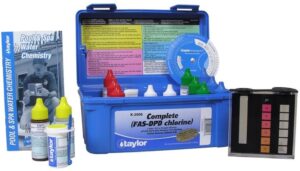
b. LaMotte ColorQ Pro 7 Digital Pool Test Kit
The LaMotte ColorQ Pro 7 is a digital test kit that offers precise readings for free chlorine, total chlorine, bromine, pH, alkalinity, calcium hardness, and cyanuric acid. With a user-friendly interface and easy-to-read digital results, this kit eliminates the guesswork associated with color-matching.
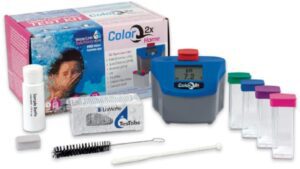
c. AquaChek Select 7-in-1 Pool and Spa Test Strips
For those who prefer test strips, the AquaChek Select 7-in-1 offers accurate readings for free chlorine, total chlorine, bromine, pH, alkalinity, calcium hardness, and cyanuric acid. While not as precise as liquid or digital test kits, these test strips are a reliable and affordable option for maintaining balanced pool water.
Selecting the right pool test kit is crucial for maintaining a clean and healthy pool.

